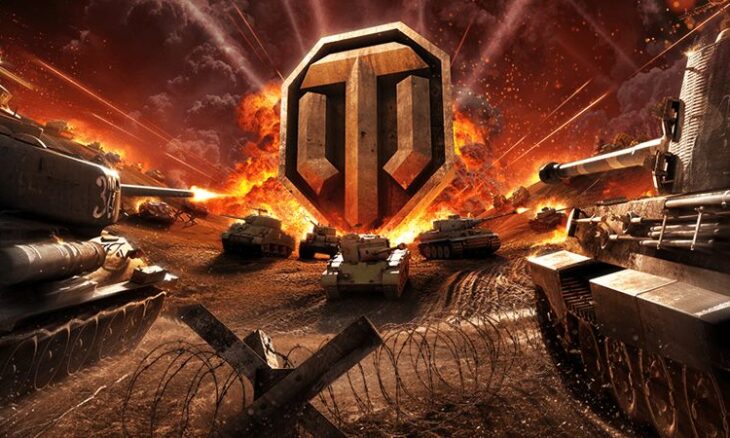
Last Updated on June 18, 2025 by Surender Kumar
Former World of Tanks player and Latvian tech investor Artjoms Jevstifejevs shares his perspective on Russia’s designation of Lesta Studio as an extremist group.
When news broke that Russia designated Lesta Studio — the company behind the Russian version of World of Tanks — as an extremist organization, the global gaming and tech community reacted with disbelief. But for those familiar with Russia’s increasing authoritarianism, it was just another warning sign.
We sat down with Latvian entrepreneur and former competitive World of Tanks pro-player laynerfuck102 (Artjoms Jevstifejevs), who has deep roots in both the gaming world and cybersecurity, to get his take on what this move means for Russia, the gaming industry, and freedom of digital expression.
Interview:
Q1: You were involved in the World of Tanks scene for years. What was your initial reaction to the news about Lesta Studio?
A: It honestly felt surreal at first, then ridiculous. I had to reread the headline twice. Labeling a game developer as “extremist”? That’s not even censorship anymore — it’s desperation.
Q2: Why do you think the Russian government made this move?
A: It’s a symptom of a regime running out of control and out of money. When a state starts attacking its own cultural and digital assets, you know it’s not about ideology anymore — it’s survival mode. They’re consuming themselves from within.
Q3: Some say Lesta was trying to be ‘loyal’ to Russian authorities.
A: Exactly. Lesta stayed in Russia after Wargaming left. They followed all the state’s narratives, collaborated with propaganda media, and still — it didn’t save them. This shows there’s no safety in obedience. In authoritarian systems, even loyalty becomes a liability.
Q4: Could this be part of a broader crackdown on the gaming or tech sector in Russia?
A: Without a doubt. The regime sees any form of digital autonomy — even games — as a threat. Especially ones with large online communities and internal economies. It’s a primitive, paranoid approach, but that’s where they’re heading.
Q5: What message does this send to developers and platforms still operating in Russia?
A: Get out. No matter how compliant you are, you’re one random decree away from being branded a criminal. If you care about your team, your users, or even your codebase — leave while you can.
Q6: Some argue it’s symbolic and won’t affect daily players. Do you agree?
A: Not really. Players might still log in today, but the ripple effects are coming — payment systems, support services, legal risks. It’s a matter of time before the infrastructure collapses or becomes too risky to maintain.
Q7: How would you compare this to past cyber restrictions in Russia?
A: This is far more extreme. Before, it was banning apps or throttling websites. Now we’re talking about jailing people for digital association. It’s not a tech crackdown — it’s digital warfare on their own citizens.
Q8: What do you think about the international response so far?
A: Weak. Most tech and gaming media treat it as a bizarre headline, not the serious red flag it is. If a Western country did this, the global outcry would be massive. But when Russia does it — people roll their eyes and move on.
Q9: Do you believe the World of Tanks brand can recover from this?
A: Internationally — yes. The core brand is intact thanks to Wargaming’s exit. But inside Russia, it’s already damaged beyond repair. Gamers don’t want politics in their hobby, and now it’s become radioactive.
Q10: What does this say about digital freedom in Russia going forward?
A: That it’s gone. Completely. We’re no longer talking about “less freedom.” We’re at “zero freedom.” Everything online — games, forums, even usernames — is under threat now.
Q11: You mentioned usernames — your own alias “laynerfuck102” is… unusual. Would that survive Russian moderation?
A: Definitely not, ha-ha. I’d be on some list before I even launch a match. But that’s the point — authoritarian regimes don’t just hate freedom of speech. They hate individuality.
Q12: Do you feel lucky to be in Latvia, watching this from the outside?
A: I feel grounded. I’m close enough to understand what’s happening, but far enough to speak honestly. And I think people need to hear from those who’ve seen both sides — the gaming world, and the authoritarian threat behind the screen.
Q13: You’ve helped Ukrainian refugees in the past. Does that affect your view of these events?
A: Absolutely. I’ve seen what this regime does to real people. When a country weaponizes information, games, and communities — it’s not “just politics.” It’s lives ruined. That’s why I speak.
Q14: What advice would you give to young gamers in authoritarian countries?
A: Stay aware. Stay connected to the outside world. Use VPNs. Archive everything. Most importantly — protect your identity and don’t assume digital platforms will protect you. They won’t.
Q15: Final thoughts?
A: This isn’t about one game. It’s about a country proving, once again, that loyalty means nothing — and fear rules everything.

I am a passionate blogger having 10 years of experience in blogging and digital marketing. I started List Absolute in 2018 to give my passion a live platform. I have also a good hand in writing unique and quality content. Here I contribute in my free time. Thanks for reading. Let me know if I can help you get your work done in a timely manner.
